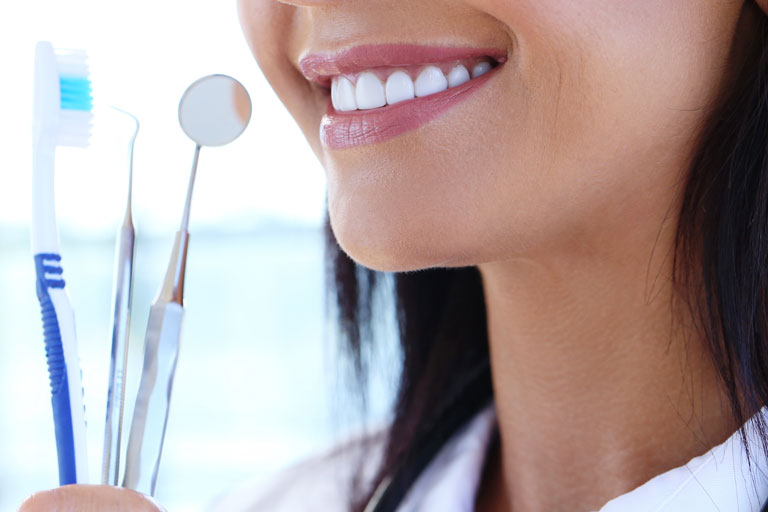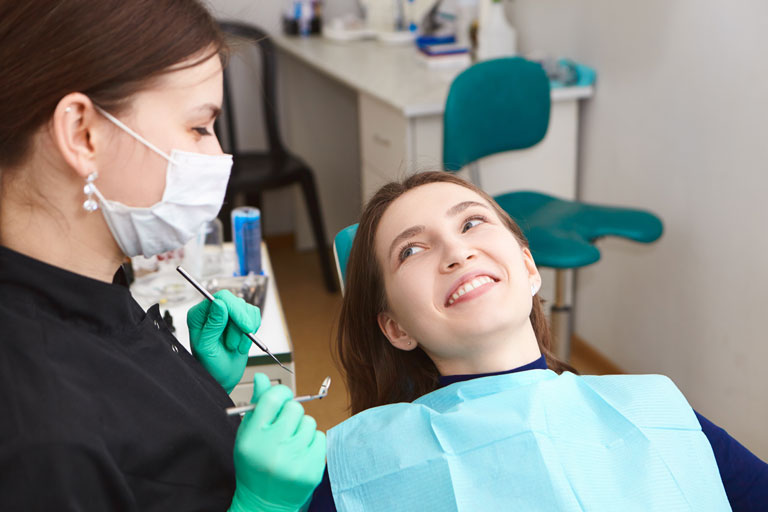Did you know how exercising can affect your oral health?
Exercise is generally good for our overall health. However, in some cases it may not be good for our teeth. The truth is, depending on the sport you do and the intensity, exercise can have both negative and positive effects on your oral health. For the rest of the post, we will give you basic information on this topic.
Negative Correlation
People who do heavy training and exercise generally have a healthy mouth. But a study published in the Scandinavian Journal of Medicine and Science showed that vigorous exercise can benefit the body, but conversely, it can be bad for the teeth. Researchers have found that heavy training can worsen dental problems – often in unexpected ways. Athletes are at higher risk for tooth erosions and exercise-induced cavities. The studies stated that “changes due to the burden in saliva parameters indicate the need for risk-adaptive preventive methods in the field of sports dentistry.”
So, to better understand why sports are harmful to dental health, researchers and other institutions at the Heidelberg University Hospital dental school in Germany enrolled 35 triathletes and 35 healthy but non-exercising adults of different ages and genders. Each of the participants had to fill out a questionnaire about their diet, typical hygiene routine and exercise habits.
In the study, all participants, after waiting quietly, visited the dental laboratory for a full oral exam. Thereupon, saliva samples were taken several times from 15 of the athletes who completed a strenuous 35-minute run.
Once the researchers compared the teeth and saliva of different groups, they found some interesting results. When compared after checkup, the researchers found much greater erosion of the athletes’; tooth enamel. Their conclusion was that the more hours an athlete spends exercising and training, the greater the risk of abrasion and tooth decay formation.
Main Causes of Dental Problems in Athletes
- Sports drinks: Many athletes prefer to maintain their body’s moisture balance by drinking sports drinks or energy drinks. Although the electrolytes found in these drinks help your body stay warm and moist during training, they also have some effect on your teeth. In fact, studies have found that there is too much acid in sports drinks, and the harms of this occur only after 5 days of regular consumption. “Young adults think these drinks will improve their sports performance and energy levels and are better for them than other sodas.” “Many of these patients are surprised to learn that they actually wash their teeth with acid,” says Poonam Jain, lead author of the study. Another factor that increases the athlete’s dental problems is how they drink these drinks. Continuous drinking of these beverages throughout your training causes teeth to be exposed to harmful sugars and acids frequently, causing tooth decay.
- Mouth breathing: During intense exercise, people breathe heavily with an open mouth. Mouth breathing dries the mouth, reduces saliva flow and creates an environment for bacterial growth. Adding acidic sports drinks to this mix will only make things worse for an athlete’s teeth. The study I mentioned above also showed that mouth breathing plays a role in tooth decay. Researcher Cornelia Frese says this can lead to enamel erosion and cavities. “Athletes breathe through their mouths during strenuous exercise. The mouth becomes dry and less saliva begins to be produced, which normally protects the teeth. “Therefore, athletes are at a higher risk for dental problems.
- Taking blows: In sports such as boxing and judo, it is necessary to use protective plates for the teeth, thanks to these, when an unexpected blow is taken, the teeth can be broken and damaged.

Positive Effects of Exercising on Oral Health
- Exercising regularly prevents gum disease: A study published in the Journal of Dentistry in 2005 revealed that regular exercise can help reduce the risk of periodontitis (gum disease). After investigating the relationship between physical activity and gum disease, it was concluded that regular exercise reduces the risk of gum disease. In fact, people who exercised regularly and never smoked were 54% less likely to have periodontitis compared to those who did not exercise regularly. The National Health and Nutrition Survey found that even partially active people (people who exercise 3 times a week or less) have a 33% lower risk of having gum disease than those who do not exercise.
- Correlation between body mass index and oral health: Body mass index is really important for your oral health. Keeping the body mass index in a healthy range is also beneficial for oral health. Health problems associated with obesity such as hypertension and diabetes are known to contribute to the deterioration of oral health. In fact, a study in the University Of Florida Journal Of Periodontology was conducted to find the effect of weight on dental health. Researchers investigated body mass indexes, body fat percentages, and oxygen consumption to evaluate how healthy each participant was. According to the study, individuals who were normal weight, exercised to the recommended extent, ate quality and healthy diet had 40% less gum disease compared to individuals who did not have any of these health-beneficial behaviors.
Exercising Doesn’t Necessarily Have to Harm Your Oral Health
Yes, exercising can cause some negative effects on our oral health. But despite this, you don't have to pay a price for your teeth to stay fit. Here are some tips you can follow to protect your teeth during regular exercise.
Alternative humidification: Electrolyte replacement is necessary as we sweat a lot during exercise. However, alternative ways to restore the body’s moisture balance are better than drinking teeth corrosive sports drinks. In fact, energy and sports drinks contain a lot of unnecessary ingredients that do not help your body to refuel, and this is purely commercial. Here are better, natural drink options:
- Water: Water is a great drink to maintain the body’s moisture balance during physical activities. If you want to make it healthier, get more minerals, add some flavor and replenish electrolytes, you can add a few drops of lemon or a pinch of rock salt.
- Coconut water: Natural coconut water without additives is also an extremely healthy option. It is not only very moisturizing but also has anti-inflammatory properties. It also helps balance glucose and insulin levels.
Nasal breathing: As mentioned above, breathing through the mouth can dry your mouth and increase the risk of tooth decay, while nasal breathing can protect your teeth and has more physiological advantages. For example, when you breathe through your nose, your nose and sinus membranes produce nitric oxide, which significantly increases the oxygen absorption capacity of the lungs and lowers blood pressure.
Buteyko Breathing Method: This breathing method was developed and named after a Russian doctor who wanted to help people breathe more efficiently. With training and practice, you can get yourself used to breathing through your nose, even during exercise. For more detailed information, you can research this method on the internet.
Healthy Dental Routine: Adhering to a healthy dental routine also protects your overall oral health. Some of the things you should do are:
– Brush your teeth at least twice a day.
– Floss regularly and use an alcohol-free mouthwash.
– Clean your teeth regularly and do not delay your dentist examinations.
As long as you are aware of how exercise affects your dental health, you can avoid situations that pose a risk. So you can keep your motivation to keep your whole body healthy.






